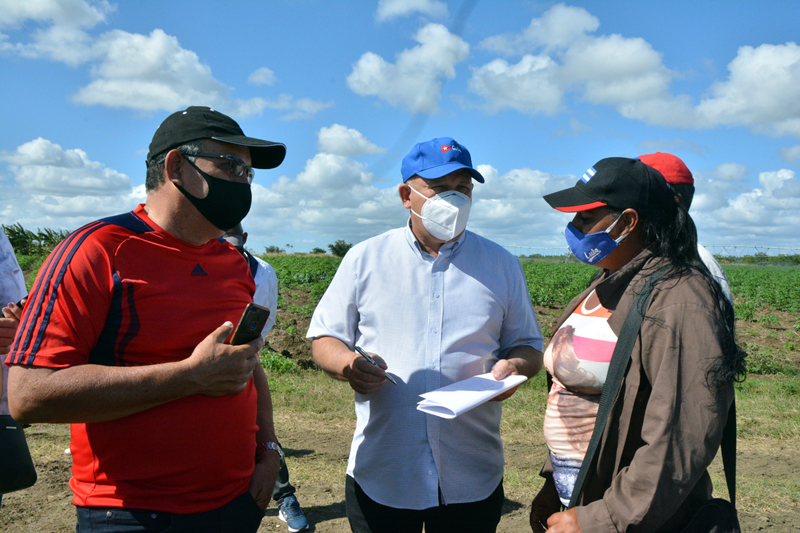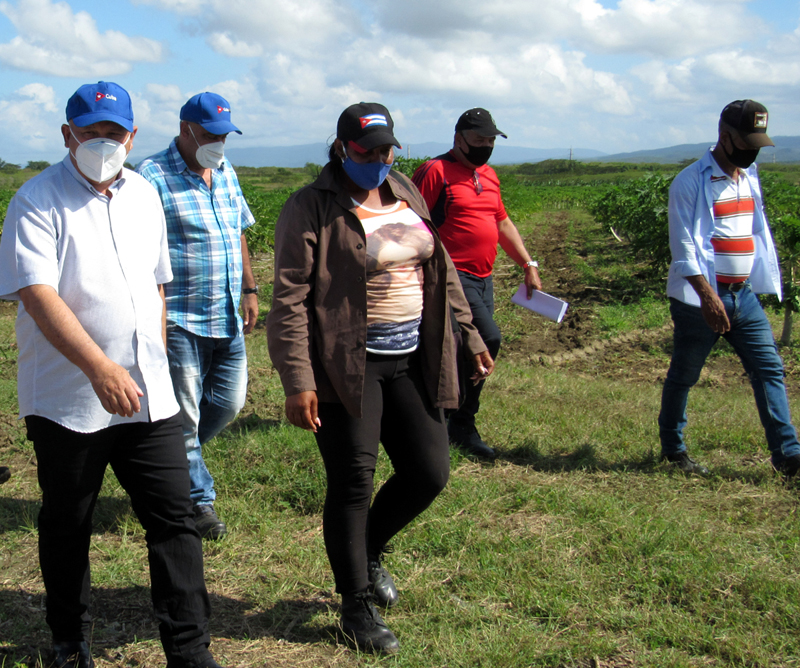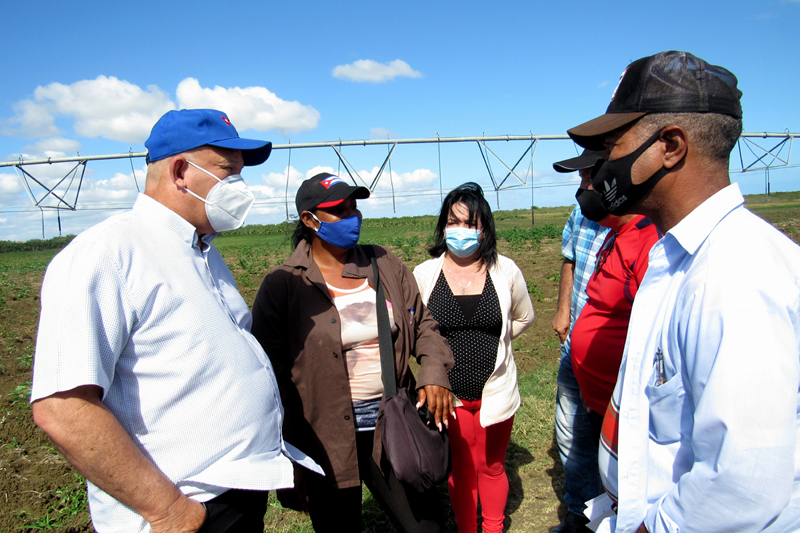Deputy Prime Minister of Cuba tours agricultural areas inf Mayarí, Holguín
- Written by Yanela Ruiz González
- Published in Holguin
- Hits: 909
 Photos: Alexis del Toro
Photos: Alexis del Toro
Achieving the necessary productive start in the Holguín municipality of Mayarí based on the strengthening of agriculture and the optimal use of the investments associated with the East-West Transfer undertaken here continues to be the object of analysis in this territory, to where the Deputy Prime Minister of the Republic of Cuba, Jorge Luis Tapia Fonseca, arrived this Saturday.
Tapia Fonseca checked the compliance with the agreements, as part of the follow-up to the indications of the country leadership to achieve the transformation of the agricultural scenario of Mayarí in the shortest possible time.
In this regard, a group of measures has been implemented to promote food production, as the people demand.

After appreciating the sowings of bomba fruit and cassava and suggesting the use of intercropping, the Deputy Prime Minister was interested in the most immediate tasks and commitments and pointed to the essence of this new structure, whose main mission is to generate production and marketing without obstacles or intermediaries and that workers receive their salary according to their results.

He insisted on the need to seek integration and promote a productive culture, check income accounts carefully and change the concepts of analysis of efficiency indicators in Agriculture, since "there is talk of planting, but not of plantation population or seed yields and quality. They are basic elements that workers must know well.”
Given the difficulties with chemical fertilizers, he urged to promote the use of agroecological practices to protect plantations, a trend that is expanding in the world and that in Cuba is not used as it should be.
Tapia commented among the ideas being evaluated for the coming months the link to the base of scientists, experts, professors and students of the Agronomy degree of Higher Education and Agriculture, to train producers in the new conception of work, the food sovereignty program and nutritional education.
